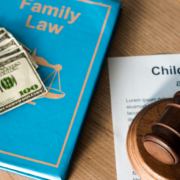If you are involved in a family law matter in Bucks County, bringing your kids to court is not a good idea for practical reasons, how it may be perceived by those in the courtroom, and the harm it may do to your kids.
Bringing your kids along may be interpreted as a “power play” by a judge, the other parent, and their attorney. Kids are not accessories to be used along with the right clothes to show you are someone to be reckoned with. This approach in a custody dispute may backfire because the judge may see you putting your interests ahead of your child.
This Is Not a Play or a Sporting Event. Parents are Airing Their Grievances About Each Other
It is crucial to shield children from conflict and allow them to maintain a positive and healthy relationship with both parents. Parents can protect their children from unnecessary stress by keeping them out of the courtroom and preserving the parent-child bond during a challenging time.
Family court proceedings can be stressful and emotionally charged, with heated arguments and conflicting testimonies. Exposing children to these intense and potentially confrontational situations can cause significant emotional distress.
Children may feel caught in the middle, torn between their parents or family members, leading to confusion, anxiety, and insecurity. Witnessing parental conflict in a formal courtroom setting can have long-lasting adverse effects on children’s emotional well-being and may contribute to relationship difficulties in the future.
The Truth Should Be Spoken in Court. The Fact Your Kids are There May Make That More Difficult
Kids’ presence in the court can distort the process. There is a risk a parent may say something for the child’s benefit. They may want the child “on their side” and put on a show to ingratiate themselves with the child while painting an overly negative picture of the other parent.
The opposite might also be true. A parent may hold back on what they might otherwise claim about the other parent to avoid hurting the child’s feelings and drawing them deeper into the conflict. A manipulative parent may bring their kids to court with this in mind as a shield to try to blunt what the other parent may say about them.
Your Children are Going Through Enough. They Do Not Need to be Humiliated
An essential reason for settling family law issues is if you do not, they will be discussed in a courtroom open to the public. All of the family’s dirty laundry may be aired. A child in a courtroom may hear things about their parents or siblings that they do not need to know in a way that can be very harmful.
They may also hear their personal issues discussed in a room full of strangers, which may humiliate them. Respecting their privacy is essential for maintaining their dignity and protecting them from potential stigmatization or unwarranted attention.
Distractions Can Make a Bad Situation Worse
If a child is very young or emotionally sensitive, they may create a distraction in the courtroom. An infant not feeling well, hungry, or with a dirty diaper will make their presence known. They know nothing of courtroom etiquette. Distraught over what they hear, an older child may also respond with tears, sharp words, and lashing out. There is too much going on in the courtroom, and it is too important to be subjected to these distractions.
Contact Karen Ann Ulmer, P.C., if you have questions or believe you will need legal assistance with a child custody dispute, whether or not it’s part of a divorce. Call us at (866) 311-4783 or fill out our online contact form today.







